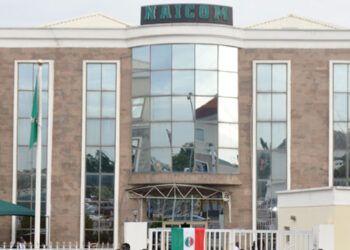International Financial media and data company, Bloomberg ripped into Nigeria’s CBN Governor after the Monetary Policy Committee failed to devalue the naira. Bloomberg was seemingly disgusted with the decision and made to secret of this immediately publishing an article titled “Nigeria Flirts With Economic Disaster as Naira Controls Stay”. The title was a teaser to what will be an onslaught.
The article is as harsh as you can imagine and further confirms the pressure the CBN Governor and Nigerian Government is facing to devalue the naira. Bloomberg wants Nigeria to devalue and was in no mood to deny it;
Central bank Governor Godwin Emefiele on Tuesday resisted calls — again — to weaken the currency despite a plunge in oil prices that’s slashed revenue in Africa’s biggest crude producer. He stuck to his foreign-exchange restrictions that have led to capital flight, curbed output in the continent’s largest economy and led to the naira dropping to a record low on the black market.
The article then went on to rip into Emefiele suggesting that he was obstinate and deaf to calls for a devaluation.
Emefiele gave no indication in his Monetary Policy Committee statement that he is ready to ease controls even though they have been widely panned by investors, criticized by businesses and questioned by lawmakers.
The article then went on to predict doom and gloom for the country believing that a worsening Naira is akin to economic disaster for the country.
That’s set to deepen the crisis for an economy that probably grew at its slowest pace in 16 years in 2015, is facing inflation of 10 percent and a record budget deficit to pay government salaries and build roads and power plants.
At some point they sought the opinion of a portfolio manager who opined that economic growth needs to collapse for the government to realise that things are bad and that it needs t devalue. It was as if the analysts wished for a collapse of the economy just to get the CBN to appease his wish.
“There is pressure but there is no way of exerting market discipline on the Nigerian central bank,” Ayodele Salami, who manages about $500 million of African equities as chief investment officer at Duet Asset Management in London, said by phone.
“We need to see a collapse in growth,” he said. “It’s not yet gone into territory where they have to panic. If growth was to be 1 percent or even go negative, I think that would definitely be the key thing that would persuade the central bank to move.”
The article won’t be complete without comparing Nigeria to other countries who have also devalued their currency.
Nigeria has resisted devaluation while oil-producing nations from Angola to Russia and Mexico have let their currencies weaken.
Of course they forgot to add that Nigeria already devalued twice in November 2014 and February 2015. Some anaylsts believe calls for a devaluation by the international media is mostly driven by narratives peddled by foreign and local investors who are not happy with the uncertainty over decisions regarding the naira. Most of them exited when the naira was about N180 in the black market and would prefer to come into the markets again when the naira is officially at about N260. That way their currency gives them more naira to buy cheap Nigerian assets that have been battered by months of sell-offs. As things stands, some of them cannot buy so many blue chip companies that are trading at price earning yields of above 20%, a return that they probably can’t ever get in other emerging markets.
Here is a link to the article



















